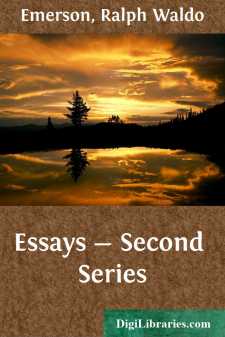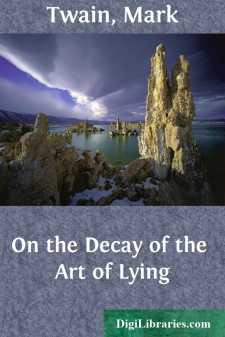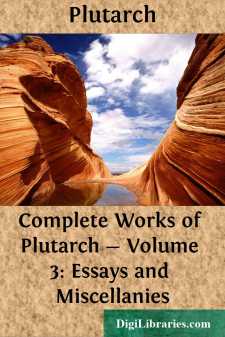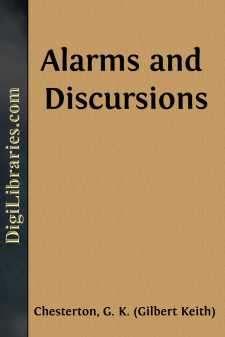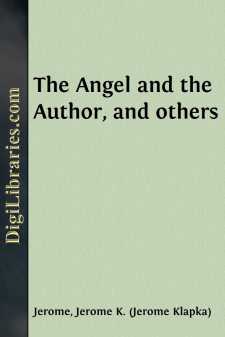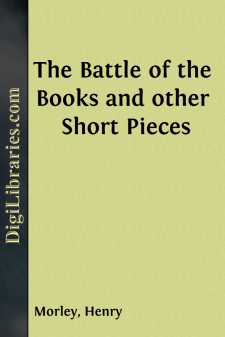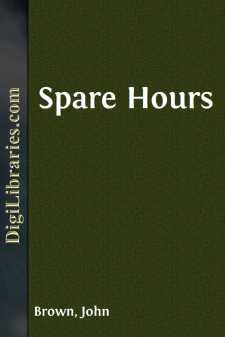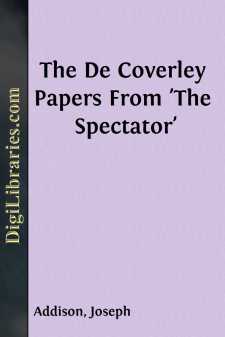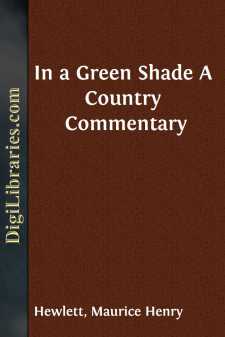Literary Collections
- American 84
- Ancient, Classical & Medieval 14
- Asian 1
- Australian & Oceanian 1
- Canadian 55
- Continental European 121
- English, Irish, Scottish, Welsh 179
- Essays
- General 24
- Letters 46
- Middle Eastern 1
Essays Books
Sort by:
I. THE POET. Those who are esteemed umpires of taste are often persons who have acquired some knowledge of admired pictures or sculptures, and have an inclination for whatever is elegant; but if you inquire whether they are beautiful souls, and whether their own acts are like fair pictures, you learn that they are selfish and sensual. Their cultivation is local, as if you should rub a log of dry wood...
more...
by:
Mark Twain
Observe, I do not mean to suggest that the custom of lying has suffered any decay or interruption—no, for the Lie, as a Virtue, A Principle, is eternal; the Lie, as a recreation, a solace, a refuge in time of need, the fourth Grace, the tenth Muse, man's best and surest friend, is immortal, and cannot perish from the earth while this club remains. My complaint simply concerns the decay of the...
more...
by:
Plutarch
Epicurus's great confidant and familiar, Colotes, set forth a book with this title to it, that according to the tenets of the other philosophers it is impossible to live. Now what occurred to me then to say against him, in the defence of those philosophers, hath been already put into writing by me. But since upon breaking up of our lecture several things have happened to be spoken afterwards in...
more...
PREFACE Seneca, the favourite classic of the early fathers of the church and of the Middle Ages, whom Jerome, Tertullian, and Augustine speak of as "Seneca noster," who was believed to have corresponded with St. Paul, and upon whom [Footnote: On the "De Clementia," an odd subject for the man who burned Servetus alive for differing with him.] Calvin wrote a commentary, seems almost...
more...
I Once upon a time there lived upon an island a merry and innocent people, mostly shepherds and tillers of the earth. They were republicans, like all primitive and simple souls; they talked over their affairs under a tree, and the nearest approach they had to a personal ruler was a sort of priest or white witch who said their prayers for them. They worshipped the sun, not idolatrously, but as the...
more...
CHAPTER I I had a vexing dream one night, not long ago: it was about a fortnight after Christmas. I dreamt I flew out of the window in my nightshirt. I went up and up. I was glad that I was going up. “They have been noticing me,” I thought to myself. “If anything, I have been a bit too good. A little less virtue and I might have lived longer. But one cannot have everything.” The...
more...
by:
Henry Morley
Jonathan Swift was born in 1667, on the 30th of November. His father was a Jonathan Swift, sixth of the ten sons of the Rev. Thomas Swift, vicar of Goodrich, near Ross, in Herefordshire, who had married Elizabeth Dryden, niece to the poet Dryden’s grandfather. Jonathan Swift married, at Leicester, Abigail Erick, or Herrick, who was of the family that had given to England Robert Herrick, the...
more...
by:
John Brown
NOTE TO THE AMERICAN EDITION. The author of “Rab and his Friends” scarcely needs an introduction to American readers. By this time many have learned to agree with a writer in the “North British Review” that “Rab” is, all things considered, the most perfect prose narrative since Lamb’s “Rosamond Gray.” A new world of doctors, clergymen, shepherds, and carriers is revealed in the...
more...
by:
Joseph Addison
INTRODUCTION No character in our literature, not even Mr. Pickwick, has more endeared himself to successive generations of readers than Addison’s Sir Roger de Coverley: there are many figures in drama and fiction of whom we feel that they are in a way personal friends of our own, that once introduced to us they remain a permanent part of our little world. It is the abiding glory of Dickens, it is one...
more...
IN A GREEN SHADE ROUND ABOUT A PREFACE The title has become equivocal, since there are more green shades in employment now than were dreamed of by Andrew Marvell. Science is a great maker of homophones, without respect for the poets. There is, for instance, the demilune of lined buckram borne by the weak-eyed on their foreheads, the phylactery of the have-beens—I lay myself open to be believed a...
more...


